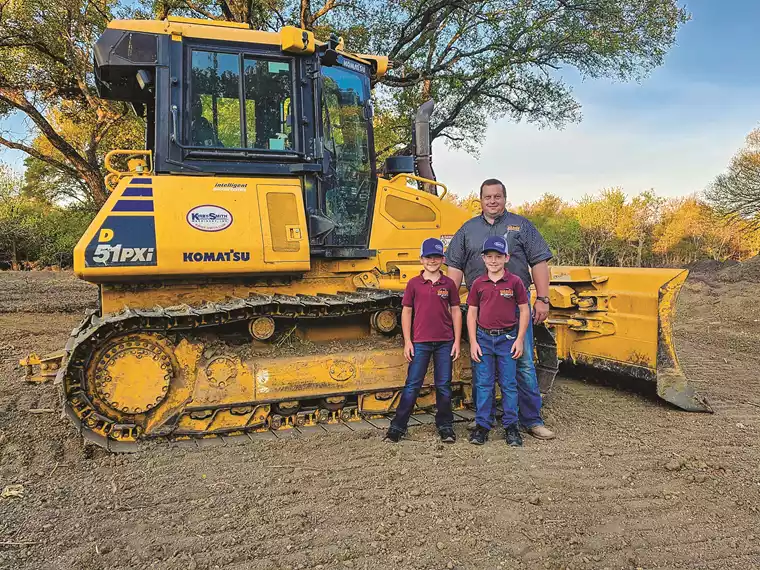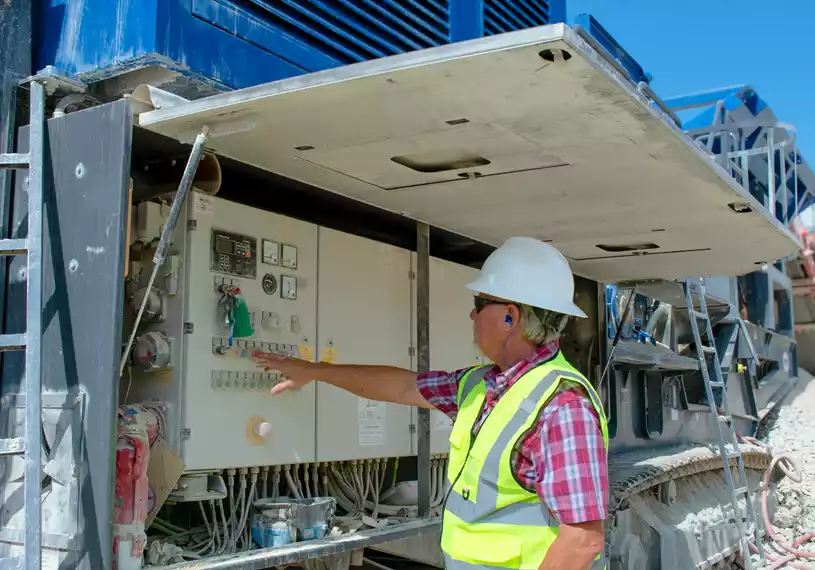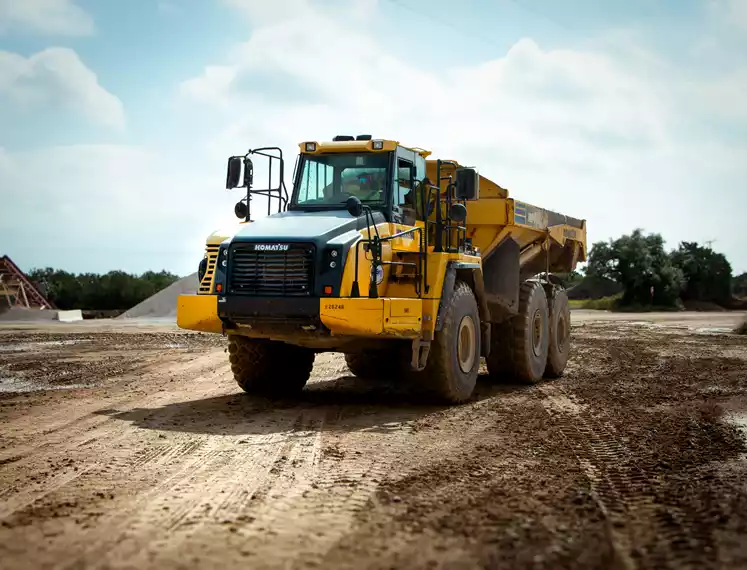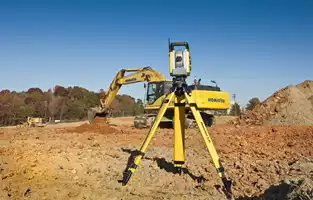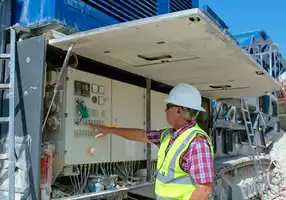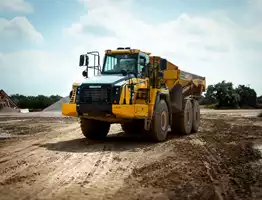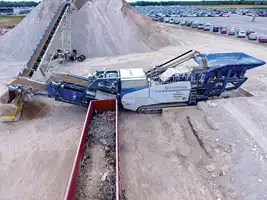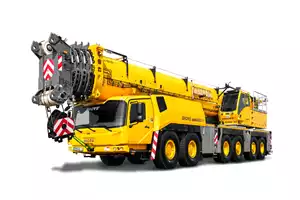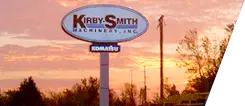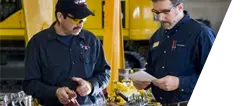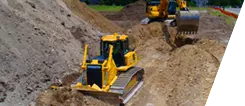Contractor brings experience to East Texas, becomes one of the area’s top sitework companies
Jeffrey Weaver discovered his calling when he was young by working for his dad’s construction business in Illinois.
“We built houses from the ground up and did all the dirt work ourselves,” recalled Weaver. “I really enjoyed it, and I knew that’s what I wanted to do for a living.”
Weaver took a job at a friend’s business and moved to southern Missouri to perform earthwork services around the Lake of the Ozarks. While he was building his career, his future wife, Judith — who grew up just a few miles from him in Illinois — was doing the same, teaching at a Christian-based school in East Texas. Weaver visited her monthly, and as the couple’s love for each other grew, so did their fondness for the area.
“We believed this area was right for us, and that’s proven to be the case,” stated Weaver.
In 2006, Weaver founded Weaver Excavating & Septic LLC in Eustace, Texas.
“When I moved here from Missouri, I brought my septic license with me, and that was a field I could jump into right way,” said Weaver. “It was a wide-open market with lots of housing being built around that time. I started with myself, a skid steer and a mini excavator, and I just kept growing from there. I worked with several contractors, putting in septic systems for them, and doing some finish grading around houses. I knew how to do house pads and was already working with developers, so it made sense to add that service. Then, I built some retention ponds and that got us into the dirt work side.”
Today, Weaver Excavating & Septic offers large-scale site packages that involve everything from clearing to paving. Its crews self-perform nearly every task — including stripping, road base prep, mass earthwork, finish grading, utility installation, and asphalt paving — to complete projects on time and on budget for a variety of clients, such as residential and commercial developers. The company subs out concrete and specialty items. Key staff members include Vice President of Operations Duane Wadel, Estimator/Project Manager/CAD Designer Scott Shelton, Septic Service Coordinator Shannon Steadham, Septic Installation Coordinator Mike Reed, Supervisor Brendyn Zook, and Receptionist Ashley Vargas.
Increased productivity with IMC
Weaver noted that the company started to do larger dirt work projects after hiring some employees with GPS experience. One of those hires was Shelton, who builds the company’s GPS models. Weaver emphasized that Shelton’s background and expertise paid off right away.
“It gave us an edge in the market,” declared Weaver. “Our initial subdivision had 2 miles of roadway and 120 lots, and we did it with a laser. It worked out, but since then, we have done all the others with GPS. They were so much easier, smoother and more efficient. We knew exactly how many yards of dirt we were moving as opposed to the guesstimate we had with the first one.”
Shelton typically uses two methods when building GPS models for the company. One option is to do a topography of a site, then make a grading plan. The other is to make a model off of an engineer’s CAD file. In either instance, he’s uploading the final models to the company’s Komatsu Intelligent Machine Control (IMC) dozers and excavators.
Once the model files are loaded into the IMC machines, it’s a matter of simple calibration and getting to work. The machine always knows where final elevation is and works to get there as productively and efficiently as possible. Weaver added that the IMC machines have increased productivity by up to 30% on most projects.
“We use the excavators to dig utility trenches,” noted Weaver. “A great feature is that once the target depth is reached, the machine won’t let you dig any further. Put in the bedding, set the pipe, and that’s it. It’s a very smooth operation. The dozers are used for road and pad construction. They know the final grade and automatically get to it. We also use them to put down subbase. There are no material overages, and we don’t have to redo work that was done incorrectly. The precision and accuracy are spot on.”
Weaver Excavating & Septic also has a Komatsu PC88MR short tail swing excavator, which is used to put in septic systems and to complete other tasks in confined spaces.
“We use the PC88 on practically every job, and it does great,” said Reed. “In addition to digging, we use it to lift and set 500-gallon tanks.”
Support from KSM
Weaver Excavating & Septic purchased all of its Komatsu equipment from Kirby-Smith Machinery Inc. (KSM) with the help of Territory Manager Craig Doran. Weaver noted that he bought his first piece of Komatsu equipment in 2010.
“I learned about Komatsu and Kirby-Smith through a neighbor, who was a Komatsu service tech, and he introduced me to Craig,” recalled Weaver. “Our relationship continues to grow because they always take care of us. Craig helps us determine what machines we need to be most effective, and Kirby-Smith backs them up with exceptional service. We love that they track the newer machines with Komtrax and do the routine services for a certain period of time, or they alert us if a code pops up, so we can address it quickly.”
KSM Smart Construction Specialist Eddie Garcia and KSM Director of Smart Construction Dennis Cox support the company’s IMC needs.
“I absolutely enjoy working with Kirby-Smith,” said Shelton. “We have a good relationship. They train our staff when needed to get them up to speed on everything and offer ongoing support. If I have a problem, I call them up, and they get me the answers I need.”
Still passionate about dirt
Even though he doesn’t run equipment as much as he used to, Weaver hasn’t lost his passion for earthmoving.
“People ask me why I do dirt work, and I tell them that I thoroughly enjoy working with people and taking care of their needs,” he said. “Taking a piece of property and turning it from a concept to a finished piece is what I love doing. We have gone from doing small septic installs to jobs as big as $2 million to $3 million. That’s a decent range, and this area continues to grow, so I think there is plenty more jobs out there that fit into that.”
Weaver is optimistic about passing down his love for the business to his twin sons.
“They love the equipment,” Weaver said. “They are still pretty young, but I’d love to be able to work with them as they get older, and they have a fascination for equipment operation. It’s up to them, but it would be great if they keep that same interest and do join on some day.”
*The opinions expressed here are from the end user as quoted. The results described herein are those of these end users under certain conditions. Your results may vary.

